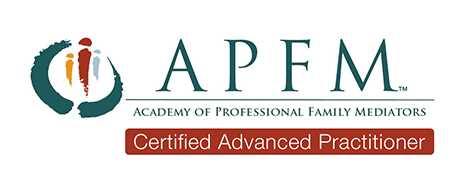When Jane filed for divorce, she knew she didn’t want to go to court. Too many friends had shared their sagas of the divorce taking years, costings thousands of dollars, and resulting in agreements that didn’t work. A friend recommended mediation.
thousands of dollars, and resulting in agreements that didn’t work. A friend recommended mediation.
Jane liked the idea, yet she was a little afraid of Bruce. He wasn’t cruel–just confident. He knew money; she didn’t. He had already outlined a complete parenting plan while she was just trying to figure out where to live. He pushed for decisions–she needed time to think. Could she mediate?
Power imbalances form one of the greatest challenges to mediation.
Mediation rests on both parties being able to speak up for their desires, openly express their concerns, and come to decisions without undue pressure. When one party overwhelms the decision-making power of the other, mediation doesn’t work.
Yet, the presence of an imbalance doesn’t automatically eliminate mediation.
In fact, couples rarely enjoy perfectly balanced power. A husband may have greater understanding of the couple’s investments while the wife better understands the monthly budget. As couples move through the roller coaster of emotions in divorce, one be may more stable in one meeting but less in another. One may be more connected to the children than the other.
Mediators routinely work to re-balance the shifting power throughout the mediation process. This ensures that both people make informed, independent decisions and come to a working agreement.
To accomplish this, mediators focus on the type of imbalance present and the actions needed to level the field.
Unintentional imbalances:
Unintentional imbalances in power occur when one spouse doesn’t intend to be overwhelming. . .but still is. Examples include:
- one person has significantly more knowledge in an area or more confidence discussing certain subjects
- one dominates the discussion because he/she is more talkative or comes to decisions more quickly
- one simply focuses on getting the process over and short-circuits discussion
If any of these dynamics exist–they potentially force one person into agreeing with the other before they are ready or against their better judgement. Yet, it doesn’t have to. These dynamics can be limited or eliminated.
Education overcomes knowledge imbalances. As mediators explain options, they fill in the knowledge gaps for the less educated party. While mediators must be careful to avoid advising, they can help party’s understand the options on the table, along with the pros and cons of each option.
So, for a spouse who doesn’t understand finances–the mediator can offer information on the various ways property can be divided, the process for each (i.e. how dividing an IRA differs from dividing a pension), and a comparison of the options in specific situations.
Parties can also refer to experts in the given field for personal education on how to proceed–i.e. attorneys, financial advisers, realtors, etc. The mediators job is to spot where the imbalance might lie and provide an avenue for getting the information that evens the decision-making ability.
Controlled discussion by the mediator helps ensure both parties are given the time to process information and the opportunity to speak. Breaking mediations into several sessions–with time in-between for parties to consider options and explore their own priorities–rather than one marathon day helps re-balance power. Mediators can conduct separate sessions when one party simply can’t speak up in a joint session. Mediators can re-frame each person’s position so that both can understand how they relate to the shared priorities and consider openly.
Focus on detail. As mediators work with parties to nail now the details of the agreement, this curbs the push to “just get an agreement” and allows both to fully understand their commitments before signing.
Intentional/Fixed imbalances
Intentional or fixed imbalances stem from either the purposeful actions of one spouse to bully the other or an innate condition that creates an ongoing imbalance. These include:
- domestic violence or abuse
- mental health issues
- blatant refusal to participate
Clearly, these imbalances prove more daunting. Yet, they do not automatically eliminate mediation as an option. The key is discerning if supports within the process can sufficiently curtail the influence of the more powerful person on the more vulnerable.
Domestic abuse–Often the presence of a support person, separate meeting rooms, and plans for protection outside mediation allow the mediation to proceed. When it works, victims find a voice. They take ownership of the decisions in their divorce as they never could in marriage.
Mental health issues–Mental health issues put both the person suffering from the illness and their spouse in vulnerable positions. The sufferer often can’t genuinely comprehend the commitments he/she is making; therefore, can’t ensure follow-through. The spouse often feels they can’t push for a desired outcome for fear of taking advantage or may count on an agreement that will never work.
Yet, options exist. For bi-polar disorders, timing of sessions to stages of the cycle can ensure decisions are made when the sufferer is most capable. For those who function well under medication, monitoring medication helps ensure competent decisions. Including professionals in the actual sessions helps ensure both parties understand the abilities and limits of the person’s decision-making and their capacity to follow through.
Refusal to participate–While many initially refuse to engage in mediation, their reluctance often stems from fear or indecision. As mediators listen to the priorities of each person, educate regarding options (along the pros and cons of each option), and offer a process for coming to decisions–reluctant participants begin to engage. The vast majority of people prefer control over life decisions. Mediation offers this control.
At The Resolution Center we listen to concerns of clients like Jane. We structure our process to ensure each person can fully participate and independently make the best decisions for their future. If you are considering divorce and would like to explore options, please call us at 317-344-9840 or email info@TheResolutionCenterIndy.com. We look forward to serving you.





